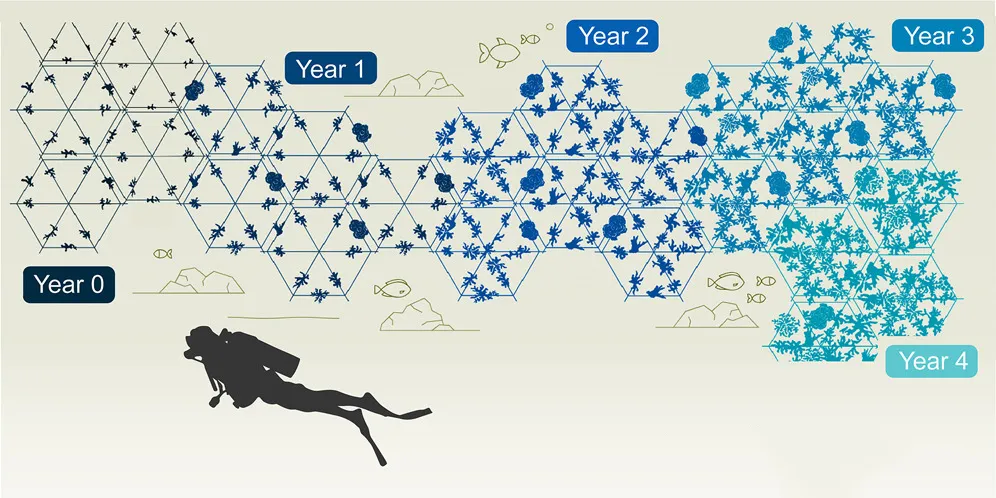Project details
The entire process took a total of four years; This points to the remarkable possibility that coral reefs are in danger of death and extinction due to climate change and anthropogenic challenges. can heal even after major damage.
The project was carried out by a team of scientists from Indonesia and the UK. The work was carried out within the scope of the Coral Reef Restoration Program, which started 30-40 years ago. Destroyed fishermen who used explosives to kill and catch fish.
The researchers used what they call “reef stars.” These are sand-covered, cast-in-place hexagonal steel structures placed in strategic areas of the barren seabed. Using a network of these metal structures, they captured and stabilized floating dead coral debris left over from explosive fishing and transplanted the live corals onto these steel skeletons. This way, floating debris does not harm living corals and new corals have a strong support for growth.
![]()

Schematic process of coral growth over the years / Photo: Current Biology
Scientists studied the result and said: restored areas are no different from natural reefs according to all parameters.
The only drawback the researchers could name was that the restored reefs were dominated by fast-growing coral species, compared to naturally healthy reefs that were more diverse.
When any ecosystem recovers from damage, whether it recovers naturally or through an artificial, man-made recovery process, the early years always look different from the final outcome.
– told marine biologist Timothy Lamont from the British University of Lancaster.
![]()

Coral growth process / Photo Current Biology
Still, the success of this project shows that we can make reefs more resilient to warming that looks set to wipe out the vast majority of corals in the next few decades.
Source: 24 Tv
I’m Maurice Knox, a professional news writer with a focus on science. I work for Div Bracket. My articles cover everything from the latest scientific breakthroughs to advances in technology and medicine. I have a passion for understanding the world around us and helping people stay informed about important developments in science and beyond.















